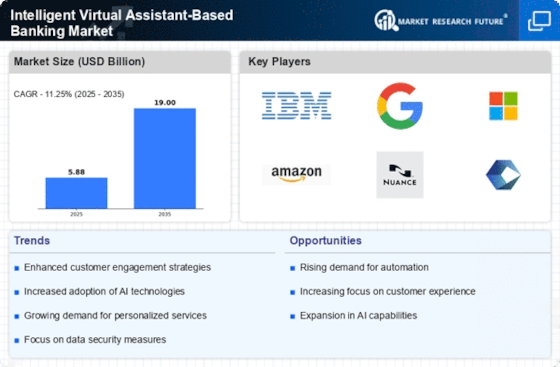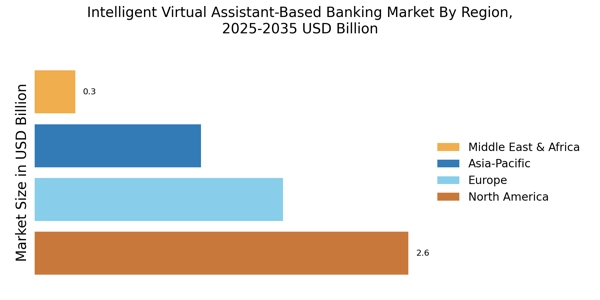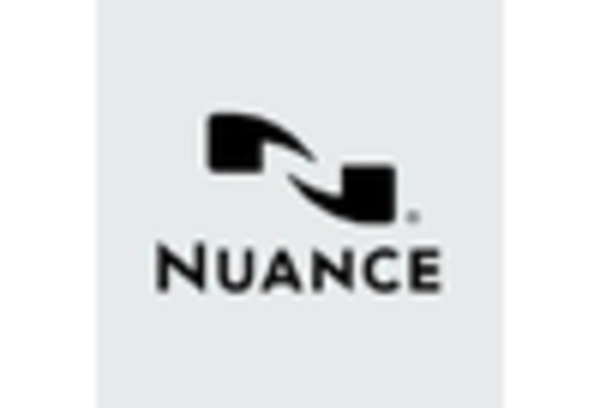Rising Demand for 24/7 Customer Support
The Intelligent Virtual Assistant-Based Banking Market is experiencing a notable surge in demand for round-the-clock customer support. As consumers increasingly expect immediate assistance, financial institutions are adopting intelligent virtual assistants to provide timely responses to inquiries. This shift is driven by the need for enhanced customer satisfaction and retention. According to recent data, approximately 70% of consumers prefer using chatbots for quick answers to their questions. This trend indicates that banks are likely to invest more in virtual assistant technologies to meet customer expectations, thereby propelling the growth of the Intelligent Virtual Assistant-Based Banking Market.
Regulatory Compliance and Risk Management
Regulatory compliance is a critical concern for financial institutions, and the Intelligent Virtual Assistant-Based Banking Market is adapting to address these challenges. Virtual assistants can assist in monitoring compliance with regulations, providing timely alerts and updates to staff. This capability is particularly valuable in an environment where regulatory requirements are constantly evolving. The ability to manage risk effectively through intelligent virtual assistants may lead to increased adoption among banks, as they seek to mitigate compliance-related risks. Consequently, this trend is likely to drive growth in the Intelligent Virtual Assistant-Based Banking Market.
Growing Adoption of AI and Machine Learning
The integration of artificial intelligence and machine learning technologies is transforming the Intelligent Virtual Assistant-Based Banking Market. These advancements enable virtual assistants to learn from interactions, improving their ability to provide personalized services. As AI technology continues to evolve, banks are increasingly leveraging these capabilities to enhance customer engagement. Data indicates that the AI market in banking is projected to reach USD 22 billion by 2025, highlighting the significant investment in intelligent virtual assistants. This trend suggests that the Intelligent Virtual Assistant-Based Banking Market will continue to expand as institutions seek to harness the power of AI.
Cost Efficiency and Operational Optimization
Cost efficiency remains a pivotal driver in the Intelligent Virtual Assistant-Based Banking Market. Financial institutions are under constant pressure to reduce operational costs while maintaining service quality. Intelligent virtual assistants can automate routine tasks, such as account inquiries and transaction processing, which can lead to significant savings. Reports suggest that banks utilizing these technologies can reduce operational costs by up to 30%. This potential for cost reduction encourages more institutions to integrate virtual assistants into their operations, thereby fostering growth in the Intelligent Virtual Assistant-Based Banking Market.
Enhanced Customer Experience through Personalization
Personalization is becoming increasingly vital in the Intelligent Virtual Assistant-Based Banking Market. Customers expect tailored experiences that cater to their individual needs and preferences. Intelligent virtual assistants can analyze customer data to provide personalized recommendations and services, enhancing overall satisfaction. Research indicates that 80% of consumers are more likely to engage with brands that offer personalized experiences. As banks recognize the importance of personalization in retaining customers, they are likely to invest in intelligent virtual assistants to improve customer interactions. This focus on personalized service is expected to significantly contribute to the growth of the Intelligent Virtual Assistant-Based Banking Market.

















